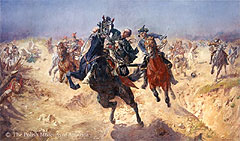Vanuatu stands out as a holiday destination because it’s more than just a beach getaway - it’s a place to absorb ancient culture and customs that aren’t found anywhere else on the planet. Vanuatu is one of the most linguistically diverse nations on the planet, with more than 115 mother tongues in common use across the islands. The most widely used languages are Bislama, English and French.
 Help us
Help us Friday 15 August -
Feast day of the Assumption of Mary (Christian feast day, one of the Catholic holy days of obligation a public holiday in Austria, Belgium, Benin, Bosnia, Burundi, Cameroon, Chile, Colombia, Croatia, Cyprus, France, Germany, Greece, Guatemala, Hungary, Italy, Ivory Coast, Lebanon, Liechtenstein, Lithuania, Luxembourg, Macedonia, Madagascar, Malta, Mauritius, Monaco, Paraguay, Poland, Portugal, Romania, Senegal, Seychelles, Slovenia, Spain, Switzerland, Togo, and Vanuatu)
Christianity is the predominant religion in Vanuatu.
The Ni-Vanuatu culture is the main culture on Vanuatu and is a very influential part of life. Almost 80% of the island’s population is Ni-Vanuatu which is what indigenous native is called. In the Ni-Vanuatu culture, they believe in a lot of myths. Traditional music is still a very important part of life in many rural areas of Vanuatu. Energetic, frenetic dances are often accompanied by chanting and rich percussion played on drums, slit gongs and rattles and the medium is used to tell traditional stories and celebrate all kinds of occasions. Art is also a fundamental part of social life and ritual celebrations, with ni-Vanuatu expressing their culture in body decorations and tattoos, elaborate masks, hats and carvings.
Modern Vanuatu cuisine combines traditional south Pacific food with European influences. Traditionally, staple island foods have included banana, coconut, pork, yam and of course beef and seafood.




















